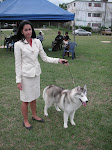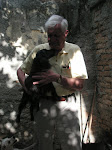Advertising
Advertising is so common here in the US that we filter out most of it from our consciousness, and so for us it’s difficult to sense the absence of something we filter out. Thus, my first couple of days in Cuba were accompanied by a faint feeling something was missing. Of course it was advertising, one of the essential tools of capitalism.
In Cuba billboards are non-existent except when the government wants to tell you something. Pull open the glass door of a tourist shop, and there are no Visa or MasterCard decals on it. If you listen to a Cuban radio station, it has no commercials. Life in Cuba, for all its serious problems, is free of voices, signs, billboards trying to get your attention, and it generates sort of a vague, empty feeling at first, until you realize what’s going on.
In the communist “utopia” central planning decides on one source for whatever is needed. Thus: no competition and no need for advertising. Stores don’t hang out signs touting their wares, and even the iconic Cuban cigar makers don’t spend money touting their products. Somehow everyone finds out where to get what he or she must have, but it isn’t through advertising. Signs promoting products somehow seem anti-communist and are clearly frowned upon. One source for each product, a communist ideal, kills Madison Avenue’s Tower of Babel.
Well, there is an exception, and that is the government. It can and does place billboards with political messages wherever it chooses. The scarcity of billboards makes the political messages all the more powerful. Driving south from my hotel, we climb a hill and wind through a park. “Venceremos,” (we shall win) shouts a billboard we pass by. A park in front of the US Interests Section (the equivalent of our embassy) sports several billboards with partisan slogans and even an unflattering caricature of George Bush. Allusions to nazism in America are common.
We aren’t above playing this same game; an electrically lit signboard with a moving message was installed high on the US Interests Section building, and it showed political messages from the US point of view. It caused lots of attention as it could be seen for many blocks along the Malecón, Havana’s seaside expressway. Not to be outdone in his own capital, Fidel planted a field of 50 flagpoles with large black flags which effectively hid the moving message board from drivers on the Malecón. El Comandante won this battle and the US signboard came off the building.
While grown men, leaders of their countries, played tit for tat or one-up-manship, Nora Garcia, President of Aniplant took advantage of the prohibition of advertising to promote the protection of animals. One of her volunteers is a top-flight photographer who blew up pictures of some of Cuba’s dogs and cats and put them on signboards that other volunteers could carry in public places. (A la the old “Eat at Joe’s” type signs you used to see men carrying to promote restaurants in the US,) The volunteers with their signboards provoke many questions, and they promote Aniplant spay-neuter clinics, solicit membership, and dispense general humane information.
Even Fidel doesn’t silence voices in support of animals.
Les Inglis
Friday, July 23, 2010
Subscribe to:
Post Comments (Atom)






























































































No comments:
Post a Comment